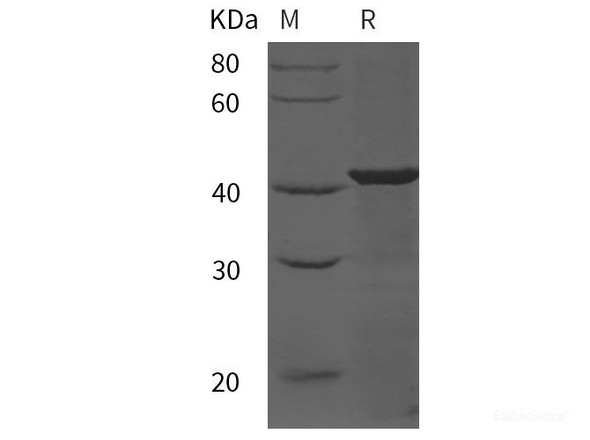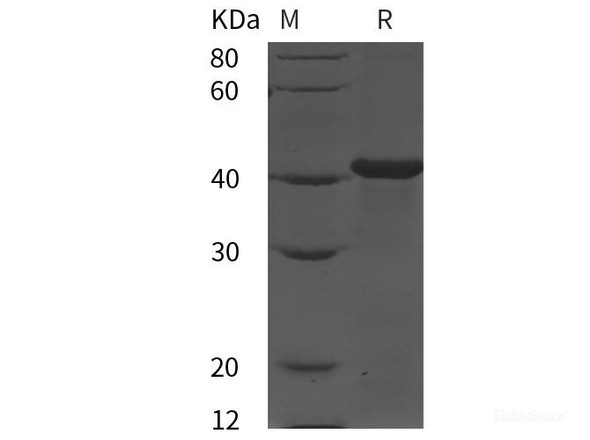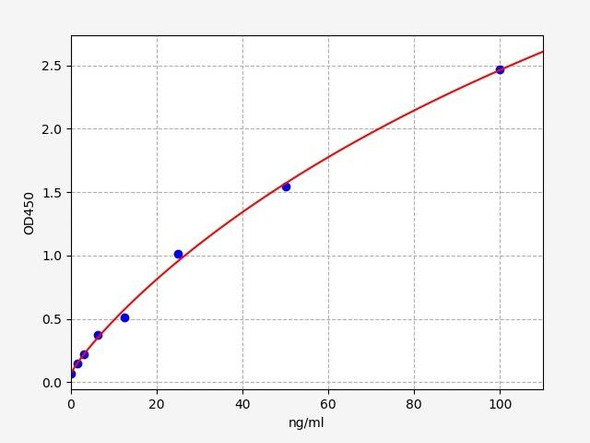Description
| Product Name: | rat Prostatic Acid Phosphatase/ACPP Recombinant Protein (His tag) |
| Product Code: | RPES5911 |
| Size: | 20µg |
| Species: | rat |
| Expression Host: | E.coli |
| Synonyms: | Prostatic acid phosphatase, Acp3, Acid phosphatase 3, Fluoride-resistant acid phosphatase, Protein tyrosine phosphatase ACP3, Thiamine monophosphatase (TMPase) |
| Mol Mass: | 38.39 kDa |
| AP Mol Mass: | 43 kDa |
| Tag: | N-His |
| Purity: | > 95 % as determined by reducing SDS-PAGE. |
| Endotoxin Level: | Please contact us for more information. |
| Bio Activity: | Testing in progress |
| Sequence: | Lys 32-Leu 381 |
| Accession: | P20646 |
| Storage: | Generally, lyophilized proteins are stable for up to 12 months when stored at -20 to -80°C. Reconstituted protein solution can be stored at 4-8°C for 2-7 days. Aliquots of reconstituted samples are stable at < -20°C for 3 months. |
| Shipping: | This product is provided as lyophilized powder which is shipped with ice packs. |
| Formulation: | Lyophilized from sterile PBS, pH 7.4. Normally 5 % - 8 % trehalose, mannitol and 0.01% Tween80 are added as protectants before lyophilization. Please refer to the specific buffer information in the printed manual. |
| Reconstitution: | Please refer to the printed manual for detailed information. |
| Background: | ACPP (Acid phosphatase, prostate; also PAP and ACP3) is a 48-52 kDa glycoprotein member of the histidine acid phosphatase family of enzymes. It exists as a 95-100 kDa nondisulfide-linked homodimer that hydrolyzes phosphate esters under low pH to generate free phosphate. ACPP is expressed by prostate epithelium and pain-detecting spinal cord neurons. In the spinal cord, ACPP dephosphorylates AMP. |






